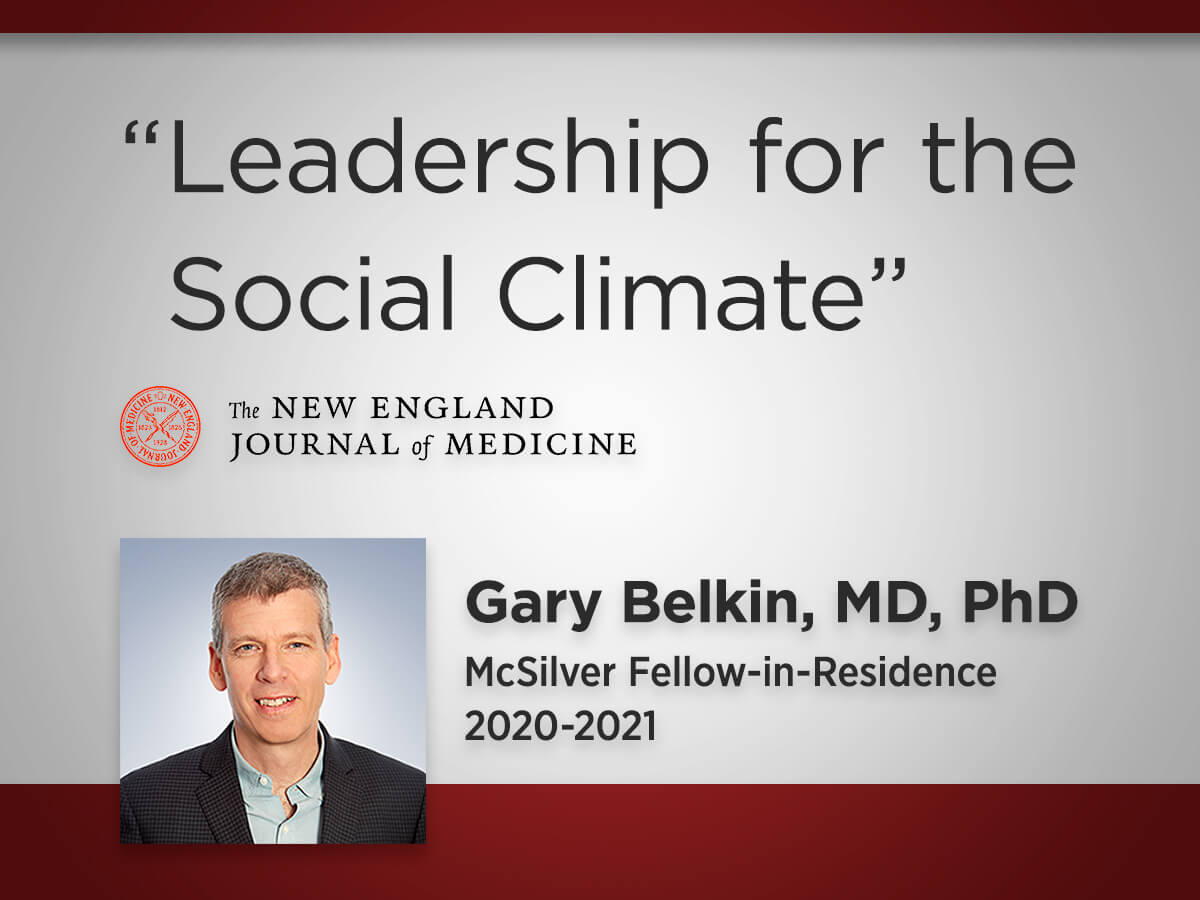(May 21, 2020 – New York) Climate change affects much more than the physical environment around us. It has a multitude of impacts to the social, economic, physical and mental well-being of people and communities. NYU McSilver Institute for Poverty Policy and Research’s 2020-2021 Fellow-in-Residence Dr. Gary S. Belkin addresses those effects and the need for “social climate” change in a May 21, 2020 Perspective article in The New England Journal of Medicine [subscription required].
As we make efforts to heal our planet, we must be sure we are tending to the mental health of those who live on it, and bolster their resilience in the face of change, writes Belkin.
Climate change agents and health systems can partner on addressing what is happening to our ecology, he continues in this excerpt, and also:
…health systems can anchor and strengthen the social climate by establishing new approaches to safeguarding community mental health. The mental health burdens associated with climate change include well-described escalations in traumatic disorders, depression, suicide, substance use, and violence caused by extreme weather events or acute environmental changes. Such burdens will further increase as these changes become long-lasting and cause disruptions to food and water security, displacement, and economic vulnerability. Added to all these are the emerging phenomenon of distress, helplessness, isolation, loss and a constricted sense of the future in anticipation of these consequences, which has been referred to as “ecological grief,” “climate anxiety,” or “solastalgia.” The psychological and social effects of this distress, especially on young people, are just beginning to be measured. However, although these widening layers of the effects of climate change on mental health have been captured and reviewed in the literature, strategies for responding to them have not had as much discussion.
Given the outsized contribution of mental illness to overall disease burden, these mental health effects could markedly increase rates of disability and premature death and unravel elements of the social climate when we will need them most. The COVID-19 pandemic is also revealing and accelerating these consequences. Responding to this expansive burden of mental health–related morbidity and its social implications will require substantial additions to the mental health system’s playbook — changes that push beyond our conventional office-based, specialist-visit–driven paradigm.
The rapidly growing evidence base for “task sharing” can serve as a building block. This practice comprises a wide range of counseling and preventive approaches that can be modified and delivered by clergy, community health workers, teachers, peers, parents, and other community members, with coaching and support from mental health clinicians. Proven interventions can then be spread widely throughout communities by means of accessible and familiar people and places. Examples include modified counseling for depression involving behavioral activation and motivational interviewing, mindfulness and stress-reduction interventions, reduction of harm from substance misuse, and trauma-informed promotion of mental health and well-being throughout the lifespan.
Finally, Belkin writes:
The COVID-19 pandemic makes this work even more urgent. It presages the complex demands that will increasingly result from ecologic change, and it shows up close how the social climate is both crucial and severely tested.
Gary S. Belkin, M.D., Ph.D., M.P.H., is the Founder of the Billion Minds Institute, which aims to bring policy and practical attention to taking on the “social climate” crisis that is intertwined with the global climate crisis. He is the former Executive Deputy Health Commissioner for New York City and was Chief-Policy and Strategy for the Office of ThriveNYC, in the Office of the Mayor of New York City. Read his bio to learn more.

